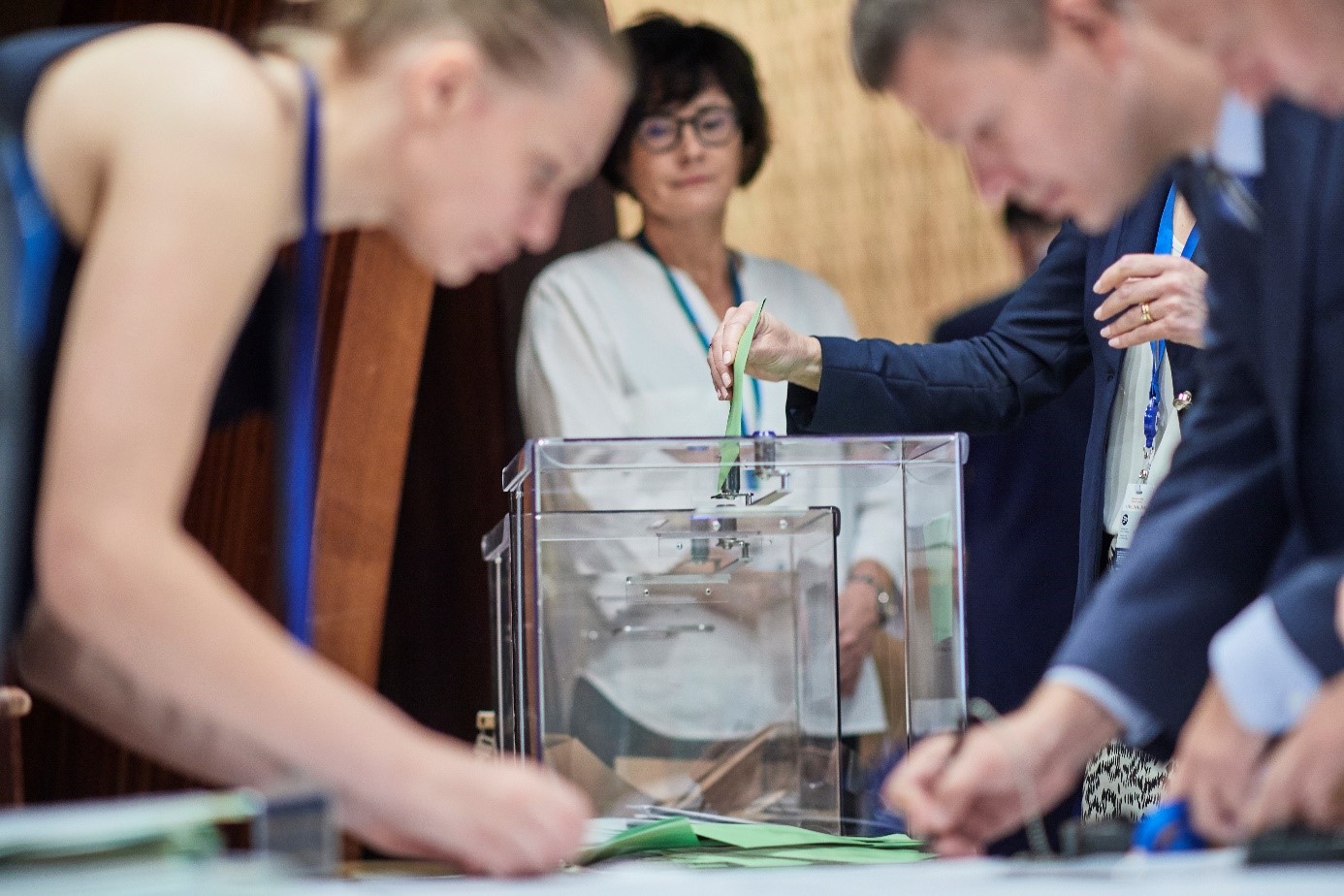Fair and transparent elections are the basis of a functioning democracy. Swiss parliamentarians have been involved in election observation missions abroad for more than 30 years.

Switzerland sent its first election observation mission abroad in 1989. Switzerland's contribution of 31 experts to the UN Assistance Group in Namibia gave fresh impetus to its foreign policy. With the fall of the Berlin Wall and the end of the Cold War, many countries in Eastern Europe, Asia and Latin America launched democratisation processes, making it necessary to set up election observation missions. In concrete terms, these missions established a mechanism for the independent evaluation of electoral processes, focusing on the collection of data on election day. However, while this task remains important, it is only one step in the electoral process and some of these missions have gradually taken the form of technical assistance, especially in countries without established democratic structures. The 2005 Declaration of Principles for International Election Observation states that this practice serves to assess the situation before and after the elections, as well as on election day itself. Indeed, the ultimate goal is to deter fraud, mitigate the potential for election-related conflict and strengthen the electorate's confidence in institutions, thereby necessitating long-term observation missions.
While the UN played a pioneering role as early as 1989, and then in 1992 when the Electoral Assistance Division was set up, this task was subsequently increasingly taken on by other institutions such as the Parliamentary Assembly of the Council of Europe (PACE), the EU, the OSCE and the Parliamentary Assembly of the Francophonie (FPA). Switzerland has been aware of the need for election observation from the outset, joining numerous missions over the past 34 years. Initially made up mainly of technical experts, the missions have gradually included members of parliament. In 2004, former Zurich Social Democrat National Council member Barbara Haering was appointed head of the OSCE parliamentary mission to observe the Bush-Kerry duel in the US presidential election. She told swissinfo at the time that "Our mission is not just restricted to election day. We will also be analysing the campaign, the access of all candidates to the media, the issue of voter registration as well as the electoral system as such and technical issues.” As an observer, "the OSCE does not have a policing role [but] delivers a report containing its observations, possible irregularities as well as possible recommendations for improvement."
For more than 20 years, the members of the parliamentary delegations to PACE, the OSCE Parliamentary Assembly and the FPA have increased their participation in these missions to such an extent that they have become a key element of Swiss diplomacy in promoting peace and democracy. In recent years, the delegation to the Council of Europe in particular has been particularly active, with participation well above average. Andy Gross (SP, ZH) has been particularly active in this area, with a total of almost 100 observation missions. More recently in 2021, for example, Alfred Heer (SVP, ZH) led observation missions to three different elections in Bulgaria. Other members of the delegation were also active in this area. Pierre-Alain Fridez (SP, JU) was rapporteur for the observation mission to the parliamentary elections in Moldova and chaired the assessment mission to the parliamentary elections in Russia: “This election observation mission to the Duma took place less than six months before the Russian Federation's military aggression against Ukraine. Using the COVID pandemic as a pretext, the Russian authorities made every effort to reduce the OSCE and Council of Europe delegations to a minimum, with hindsight a deliberate strategy to avoid a serious assessment. There were supposed to be more than 500 Western observers in total, but in the end, there were just five of us in Moscow, one representative from each Council of Europe political group. An observation that turned into a mere assessment, but which nevertheless allowed us to come into contact with representatives of the Russian opposition, in particular from the Yabloko party, and to see that these elections were not competitive as they clearly did not offer equal opportunities to all participants.” Other members of the delegation also took part in election observation missions, such as Damien Cottier (FDP, NE), also in Bulgaria, and Jean-Pierre Grin (UDC, VD) and Sibel Arslan (Greens, BS) in Albania. As for the OSCE delegation, its 2021 report also highlights its extensive participation in election observation missions throughout the year, in particular in the post-Soviet region (Kazakhstan, Kyrgyzstan, Armenia, Moldova, Russia and Uzbekistan). During the election observation mission for the 2020 US election, for example, Council of States member Josef Dittli (FDP, UR) was responsible for visiting 10 polling stations in Washington D.C. and in Maryland. Speaking about how the mission went, he explained: "We had to assess whether there were enough staff or whether the voter could vote freely. So we had to go to the polling station manager beforehand to identify ourselves and ask for permission to observe the election. The officials did not know how to handle the situation. No one knew about the OSCE, but we had an ID signed by the state election official. We were welcomed in a friendly manner everywhere and were able to discuss all the issues and assess all the elements we wanted to. We needed about 45 minutes per location. We started our mission at 6.30 in the morning and ended at 6.00 in the evening.”